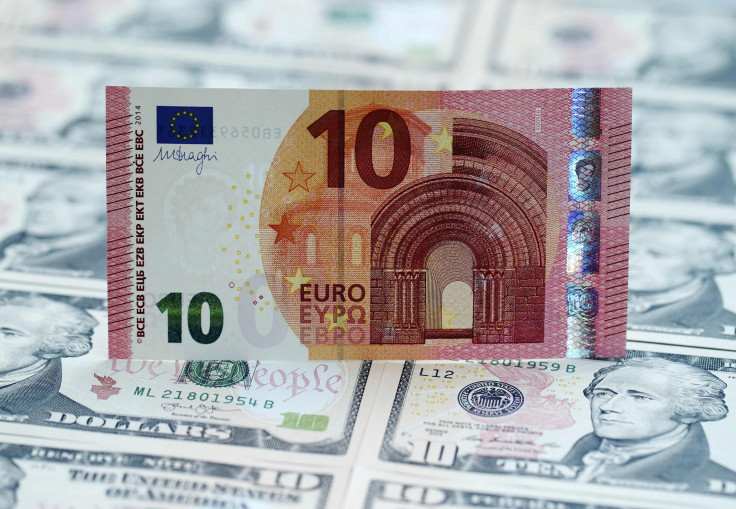Why Is The Euro Dropping? As Greek Debt Crisis Drags On, The Currency On Track For Its Biggest Quarterly Decline Ever Against US Dollar

The euro is on track to record its biggest quarterly drop against the U.S. dollar since the currency’s inception in 1999. The currency has tumbled more than 11 percent against the greenback since the start of the year as Europe sorts through the ongoing Greek debt crisis.
The bailout drama in Athens has reignited concerns about Greece's possible exit from the eurozone after talks between the Greek government and its creditors stalled earlier this week. The struggling country must finalize negotiations or face bankruptcy in just a matter of weeks. The situation added downward pressure on the euro Tuesday. The currency fell as low as $1.0715 in morning trading. In the last 12 months, the euro has dropped just over 22 percent.
When the euro was first introduced on Jan. 1, 1999, it declined sharply that year, depreciating 14.8 percent by Dec. 31, according to Thomson Reuters data. The euro then hit parity with the dollar in January 2000, before tumbling as low as $0.83 in October of that year.
The euro is approaching parity once again with the U.S. dollar, something the world hasn’t seen since 2002. The eurozone's official currency previously hit a 12-year low of $1.0495 against the greenback earlier this month on March 12 as the European Central Bank launched its massive quantitative easing program. Europe’s central bank is pumping 1 trillion euros ($1.1 trillion) into its economy over the next 18 months in an effort to restore the inflation rate to a targeted level of 2 percent and help boost economic growth in the troubled region.
But as the euro is weakening, the U.S. dollar is surging to multiyear highs. Adding to the euro’s decline is the divergence of global central bank monetary policies. The U.S. Federal Reserve is reconsidering its monetary policy stance and will likely raise interest rates in 2015. The greenback has continued to surge this month, putting it on track for its best quarterly gain since 2008.
Much of the greenback's recent surge is driven by the prospect of Fed interest rate hikes. But the rise of the U.S. dollar is raising concerns for investors ahead of earnings season as nearly half of S&P 500 corporations' revenues are derived overseas. A prolonged period of dollar strengthening would hurt U.S. multinational corporations once they convert foreign revenue to dollars, slowing earnings growth.
Greece and eurozone finance ministers must reach agreement over the country’s reforms in the next few weeks in order for Athens to unlock the latest 7.2 billion-euro ($7.82 billion) wave of financial assistance from the 240 billion-euro ($270 billion) bailout package that was approved last month. But under terms of the agreement, Greece is required to submit an economic reform package that must be approved by its creditors before Athens can receive the remaining bailout money--cash it needs to avoid bankruptcy.
Greece and EU finance ministers are scheduled to resume talks Wednesday.
© Copyright IBTimes 2024. All rights reserved.




















